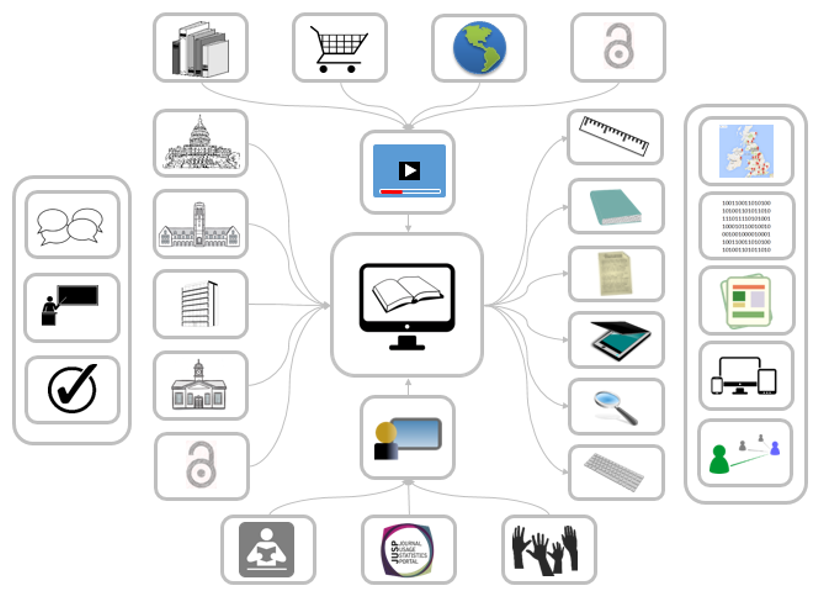Jisc has been working very closely with representatives from the academic library sector (and in particular RLUK, SCONUL and the British Library) to refine and articulate requirements for a new large scale national service. The proposed title of the service is the National Bibliographic Knowledgebase (or NBK for short).
This is essentially the Knowledgebase that the National Monograph Strategy Roadmap set out as its first and most significant recommendation and which will be the foundation upon which a number of important functions and activities will depend. The data underpinning the Knowledgebase will rely – on the first instance – on libraries of all types allowing their bibliographic and holdings data to be aggregated by a designated service provider into a single system that is capable of working at greater scale and ingesting more diverse library data at much faster rates than is currently the case with the Jisc Copac service.
I’ve been taking every opportunity I can to set out the high level plans for the new service and one of the recent conferences I presented at was the SCONUL 2016 conference in Cardiff. I showed a presentation called SCONUL 2016- Building the Case which graphically and textually describes the objectives and the scope of the service; sets out the problems we are aiming to tackle; and finishes by suggesting some value proposition thought experiments and some sustainability ideas.
It’s important to note though that this initiative is now into an active procurement phase where Jisc is in dialogue with short-listed suppliers to negotiate and clarify how the NBK will be created and delivered for the benefit of UK academic and specialist libraries and their users. The schedule is ambitious – both for selecting and contracting a supplier to build the NBK (in place by November 2016); and for delivering a richly functioned production-level service with integrated data sources (by November 2018).
Most important of all, however, is to underline that the building of this system must be a shared community endeavour rather than something that Jisc simply attempts to procure and deliver at a reasonable cost to whoever is interested at the point of use. We are working closely with RLUK, SCONUL, the British Library, individual representatives from academic libraries, with publishers, licensing organisations, and service providers to try and really think through how to realise transformational change. That change must involve improving the quality and comprehensiveness of information across the bibliographic data ecosystem; but must also involve more effective and efficient access to e-books and digital surrogates of print books.
Those interested in both strands of work might find the recent presentation at the LIBER conference of interest (LIBER 2016 BD-NMS_PM_NG_FINAL) which features analysis and results from our digital access pilot project.
Fingers crossed that we emerge in early November with a solid specification and a strong plan for building the type of data foundation that supports emerging and evolving ideas around a National Digital Library.


